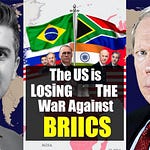Nima Rostami Alkhorshid:
What is your assessment of Donald Trump's decision to halt sending more weapons to Ukraine and its potential impact on the conflict?
How do you interpret Macron’s recent outreach to Putin, and does it signal a shift in European policy toward seeking a diplomatic resolution?
Given the West’s attempts to draw divisions between Iran, Russia, and China, how solid is the current alignment among these countries?
What is your perspective on the situation involving Azerbaijan, especially regarding reports of Israeli and Turkish influence and its implications for regional stability?
Considering Western reliance on indirect strategies and proxy conflicts, do you foresee new tensions emerging in regions beyond Ukraine and the Middle East?
Andrei Martianov:
Trump’s decision reflects U.S. military-industrial limitations rather than goodwill. The U.S. is running out of resources and cannot sustain arms deliveries.
Macron’s call to Putin stems from fear, not diplomacy. Europe is panicking as it realizes the war is unwinnable and energy vulnerabilities are critical.
The West’s narrative attempting to divide Iran, Russia, and China is false. These nations are closely aligned, especially after recent events like the Iranian-Israeli conflict.
Azerbaijan’s actions are influenced by Turkey and Israel. However, Russia and Iran have leverage and will act decisively if provoked, given their strategic interests.
Yes, the West will continue using destabilization tactics elsewhere, particularly in Central Asia and through radical Islamist groups, due to its military and industrial impotence.













Share this post